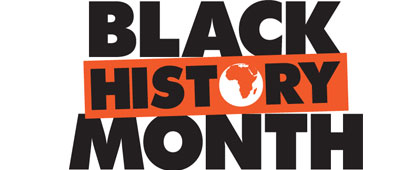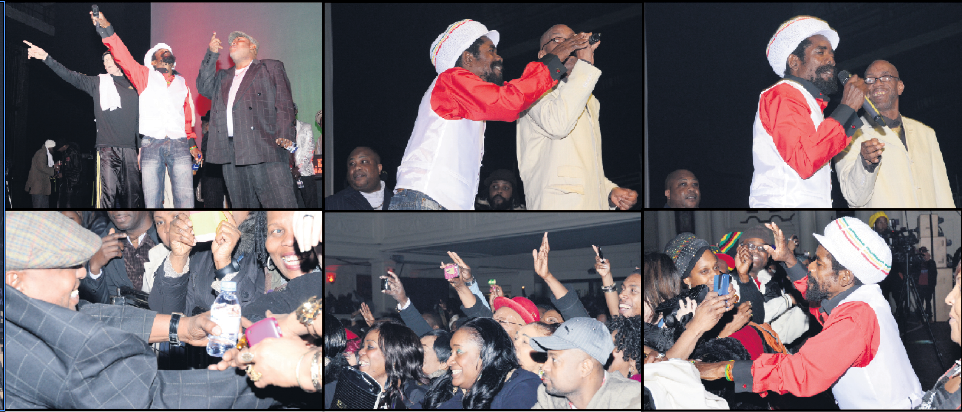Black History Month – a thing of the past
by Nadine WhiteBlack History Month, as we know it, came to the UK in 1987. This was at a time where there was a lot of Social & Political unrest within the Black Community for various reasons. A man by the name of Akyaaba Addai Sebbo (UK based Social/Political Consultant) is hailed as the ‘man who made it happen’ and former Mayor of London, Ken Livingstone, was also an instrumental figure in making Black History Month a reality. It had its beginnings in America in February 1926 as ‘Black History Week’, under African-American Historian, Carter. G Woodson. February was the birth month of two key figures in Black History – Abraham Lincoln, the ‘Great Emancipator’ who was behind the abolition of Slavery, and Frederick Douglass, a famous African-American abolitionist. In 1976, the call for ‘Black History Week’ to be extended to a month was supported by the American Federal Government – hence ‘Black History Month’ in the USA. Typically consisting of different workshops and events, Black History Month is supposed to be intended to teach the masses about the various historical achievements of Black people and how it has impacted on today’s society. The idea is that it also acts as a social adhesive to help to bridge the gap between the white majority and the minor ethnic community. Ken Livingstone said: “(Black History Month is intended to)…enrich the cultural diversity of the Greater London area. […] Despite the significant role that Africa and its Diaspora have played in the world civilization since the beginning of time, Africa’s contribution has been omitted or distorted in most history books.” By definition, Cultural Diversity means a range of different groups with different origins and traditions all living and interacting together. If the enrichment of cultural diversity is one of the prized aims of Black History Month, then we’re more than half way there. In 2012, we don’t just interact and understand one another’s culture…we wear it, we eat it, we sing it, we rap it, we say it. Immigration, influences by the media and the change in popular culture means that ”t’ings and times have changed”! Cross-cultural influences are now a given, which is a far cry from what the situation was when Black History Month was founded. With that, Black History Month has lost its significance. On every corner, there’s either a Mosque or a Caribbean Food Shop, with an irate Jamaican woman behind the counter (with no customer service skills) and the White, Black and Asian school girls queuing up for a beef patty after school. African culture has influenced our dance; women aspire to their physical assets i.e. full lips and derriere! Just the other day, I was in a Sari. I bought it to wear to an Asian wedding as I fancied a change in attire. I went home after, kicked off my high heels, and settled downed to watch a spot of ‘Eastenders’. To my amusement, I see lovable Asian kid, ‘Fat Boy’ screaming ‘Whagwahn Blood’ to Patrick – the Trinidadian pensioner – over the bar in the Queen Victoria Pub. I can bet that you didn’t see that on your TV screens back in 1976! The second goal of Black History Month, as stated by Livingstone, is to subsidise the exclusion of African history in children’s learning at School. The bulk of historical topics are based on European history, which does leave a lot to be desired. I daresay that history lessons in school generally do not cater for the ‘little man’ and that includes even the White working class…I only learned about Chartism (a white working class movement) at A-Level History. Classroom history tends to be the ‘Rich Man’s History’, hence why some Black history is distorted in the textbooks. However, history begs the question ‘What is history? The truth – or what is told?’. In the same breath, some aspects of African history are actually included in the curriculum, although it is still not inclusive enough. That problem cannot be solely remedied through Black History Month; a remedy is needed within the household of the Black community. It is not the responsibility of some ambiguous state bureaucrat to affect change in one community and it would be asking too much to expect that. Yet, that is always the expectation of the government from most Ethnic minorities…and if anything goes wrong, the government get the blame quite quickly. Learning begins in the home yet most Black parents do not pass on historical knowledge to the younger generation. Maybe because they don’t know how to approach the situation; don’t know about their ancestry, themselves, or because they feel young people won’t or don’t listen. Either way, it doesn’t happen. There is an old Jamaican saying ‘Dance ah yard, before you dance abroad’ – we cannot uphold ‘Black History’ in our front room, so what is the point in a public campaign such as Black History Month when there is no ‘body of people’, interested enough to uphold it? “T’ings and times change” and in 2012, there are weekly stabbings, monthly killings and Black on Black attacks; the difference between now and 1976 is that the emphasis has gone from trying to instill Black pride into the greater community to trying to instill Black pride into, well, black people and keeping our youngsters alive. Besides, if its information that Black History Month is here for, and parents don’t want to “talk the t’ings”; the curriculum isn’t teaching it and nobody wants to pick up a Black History book – we have wonderful developments such as the internet! Everything is at the tip of our fingers, unlike back in 1976 or even 1926. Gone are the days where our story is never told. Cue the fall of Black History Month. Another important question to ask is an economic question: Is Black History Month feasible? The fact that the London Mayor has cut funding for this month speaks volumes, despite Boris’ overall lack of scruples. Funding has been hammered down from £132,000 to just £10,000. Rather than trying to create a separate recognition for ‘we’, time and effort would be greater spent on trying to infiltrate the institutions which are already standing – such as the National Curriculum, the Library for instance – a ‘Black Heritage’ Museum is set to open in Brixton, South London. That way, a lasting impact could be had on greater society. The fact is that the UK’s in a recession and “money no deh bout like one time”! As such, there is no longer spare money to invest into funding individuals cultures. That is not to say that Black History Month hasn’t been fought against. I believe that it has been fought against and mainly because of the perception of what it means to be Black, in some circles of society. After the London Riots of 2011, politician David Starkey said: “The Whites (rioters) have turned Black’. This comment sums up the negative perception of Black people by some of their White counterparts. Why, then, would a month such as Black History Month be supported by all? Black History Month is becoming less and less relevant and it should not come as a surprise. Rather, it should come as an opportunity to make more lasting efforts to ensure that Black Ancestors’ efforts to affect change did not go in vain. Also, as Black History Month becomes more and more redundant in a changing society, it can no longer be used as a smoke screen to mask the Black Community’s genuine issues and incessant internal conflict.




Ooh! Thanks Francesca! <3